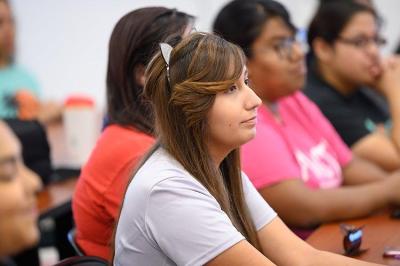
Starting a Local 2025 Action Team Chapter
Note: This is chapter 2 of Best Friends Animal Society's Grassroots Advocacy Toolkit.
Best Friends' 2025 Action Team is a nationwide grassroots movement working to help every shelter in every community achieve no-kill for dogs and cats by the year 2025. If you’re ready to form an action team to help save the lives of more pets in your community, read on. This chapter contains tips for getting started.
Learn more about the animal issues affecting your community
As noted in chapter 1, it’s important to do your research first to determine what the animal-related issues are in your community. Connect with local shelters and other animal welfare groups. Find out whether there are other individuals or organizations already working to solve those issues, and see whether you can join forces.
Community-based efforts should always be collaborative, not isolated. Effecting local change requires local stakeholders. Getting help from groups and resources outside your community can be helpful, but ultimately the change must come from within.
Identify others to help lead lifesaving efforts
Look for like-minded people in your community who are equally passionate about the issues you’re working to address but who also have diverse perspectives and complementary skill sets. To ensure maximum engagement and impact, your leadership team should be representative of the various types of people in your community. If your fellow leaders look and think just like you and share identical perspectives and experiences, you’re less likely to reach a broad range of people and make a difference.
Get the word out
Spread the word and network, network, network. Create email distribution lists with friends, family, and acquaintances, and share relevant information, resources, and events. And, of course, remember to be respectful of people’s time and allow them to opt out when they choose.
Home starts with you
Use your social media channels to announce your action team and keep people informed with updates and initiatives that require their support. Connect with other social media pages that share similar goals and interests, and encourage people to get involved. See chapter 8 for an in-depth discussion on effective online advocacy.
Organize action team meetings
While you can accomplish quite a bit over the phone and online, it’s still essential to meet in person regularly to ensure progress and effective coordination. Your action team meetings should have a sense of urgency and importance attached to them, rather than a more casual or optional feel.
Determine goals and stick to an agenda
Every team should have agreed-upon short-term and long-term goals, and every meeting should have an agenda that is mindful of those goals. When we’re particularly passionate about an issue or topic, that’s often all we can and do talk about. And the more people you involve, the more topics will come up for discussion. So keep things organized and on topic while reassuring people that there is room for everyone to be acknowledged and heard.
Agree on shared principles
What does your team stand for? What will you be working to achieve? We recommend incorporating these two guiding principles into your team’s objectives:
- Only by working together can we get our community, and eventually the nation, to no-kill.
- To do this, we need to be positive, empowering, and fair.
Agree on how you will communicate
Your team members need to be able to reach each other to keep up to date and coordinate. To that end, consider creating a private Facebook group, a Slack team, or something similar. The possibilities are endless, but use whatever communication tools your folks are most comfortable with.
Determine roles and responsibilities
Assign roles and responsibilities to your team members based on their interests and skill sets. It’s important to give people the opportunity to contribute in ways that keep them engaged and successful. And assigned roles help you avoid having too many cooks in the kitchen for any one task. Some questions to ask might be:
- Does anyone like to organize events? Anyone who likes attending and assisting with events?
- Are there people interested in attending meetings and hearings or speaking at legislative events?
- Is there someone interested in writing blog posts or op-eds and letters to the editor for local papers and other media?
- Is there someone who might want to make calls, host events, or spend time engaging on social media?
We recommend the following roles as a good starting point:
- Group coordinator (1-3 people): To coordinate all communications and track team progress
- Designated media spokesperson (1-2 people): To track, attend, and speak at community meetings and hearings and to interface with local press
- Designated social media lead (1-2 people): To coordinate all communication and engagement through Facebook, Instagram, and other social channels
- Event coordinator (1-2 people): To track and coordinate group participation in community events
Recruit more action team members
Once you have some key roles assigned, step up your team recruitment game. Ask current team members to send emails and connect via social media with their personal networks to help grow your team.
And don’t forget to take advantage of face-to-face recruitment opportunities. Grab a table at a farmers market. Get out in your neighborhood and talk to people. Some people might ignore one more message or Facebook invitation, but they’ll listen to what you have to say in person.
Finally, remember to recruit a diverse team that is representative of your community and the people who call it home. Think beyond your usual social and professional circles to other neighborhoods, groups, and people whose interests might intersect with your own.
